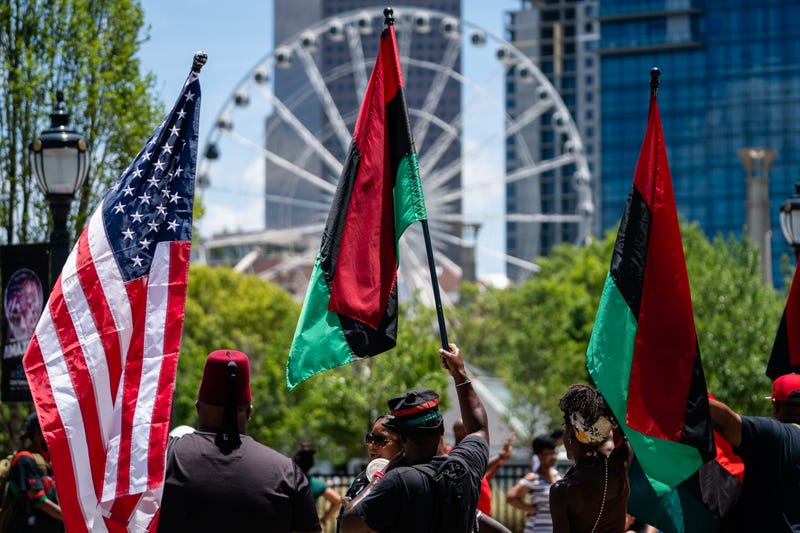
Buffalo, N.Y. (WBEN) - Monday marks a holiday known nationally as Juneteenth, a holiday that has been celebrated in grand fashion by Buffalo since 1976, bringing communities together to celebrate Black culture, history and reflect on the when all enslaved African Americans were emancipated.
listen to wben now!
"Before the nation heard about Juneteenth, before it became a national holiday last year, we were celebrating Juneteenth in Buffalo for many, many years," says Eva Doyle, East Buffalo advocate, educator and columnist.
"We have a long tradition of celebrating Juneteenth and it means a lot to me, because it's an opportunity to teach others about our history, it's an opportunity to get our young people involved to do something positive."
Although President Abraham Lincoln issued the Emancipation Proclamation in 1863, an order freeing the slaves in Texas wasn't issued until June 19th 1865, which followed by a large celebration in Galveston, Texas.
"It's important that people know the history of it," says Marnetta Malcolm, East Buffalo resident and organizer of Jefferson Avenue's Friday Night Live. "Finding out that you were free two years ago back then, I can't even imagine."
Many members of the community who celebrate the day would agree that one of the most essential reasons for celebrating Juneteenth is to educate themselves, their community and everybody in the nation of African American history, a history that is not largely discussed in schools.
"This is history. This is tradition. This is culture," says Doyle.
"I taught my grandchildren and my children about Juneteenth, now I have great grandchildren to teach. We have to pass this history on to our families, to our children, and to let them know that there's positive things that happen in the African American community. I still do a lot of educating to people who visited me, and I've had a lot of members of the white community who would come by my table [as a Juneteenth vendor], and I had the opportunity to explain to them how important Juneteenth was for our community, the African American community, and we welcome all people to come out and to be a part of this."
Ever since the first Juneteenth celebrated in Buffalo on Jefferson Avenue, large crowds come out to celebrate the festivities, watch the parade and hear community leaders speak to the rich history. This weekend saw large crowds around MLK Park.
"This is probably one of the biggest Juneteenth parades in many years, and the second Juneteenth parade after May 14th, 2022," acknowledged Buffalo Mayor Byron Brown on Saturday.
This Juneteenth is an important time of reflection in the City of Buffalo, as almost one year ago, we continue to heal as we reflect and honor the lost lives of ten Black people at the Tops Supermarket on Jefferson Avenue, lives that were lost due to a terroristic and racially-motivated hate crime.
"We had a real tragedy here in the City of Buffalo, but this is a time to honor those people who lost their lives and to carry on their work, because they, the 10 people who were killed, they were workers in our community, they were leaders in our community. This is a time to carry on their work, and to do the things that they did to advance us as a people," Doyle said.
"I grew up in that area," said Malcolm. "So some of those people I knew and when I drive down [Jefferson Ave.], I knew I had to do something to bring back a little hope, a little life."
Although some of the main festivities have passed in Buffalo, Doyle invites everyone to a Maafa ceremony this Wednesday, June 24th, which starts 6 p.m. at Broderick Park.
While some African American history books continue to be banned in the nation and voices can be attempted to be suppressed, Doyle and Malcolm remind the public that the best way to celebrate Juneteenth is by continuing to talk to people, continue the pursuit of knowledge and history, and continue to love and respect everyone.
"Monday is a time for people to reflect, to learn for themselves, and to talk to other people. Oftentimes, we don't communicate enough, as African Americans and people in the white community," Doyle notes.


